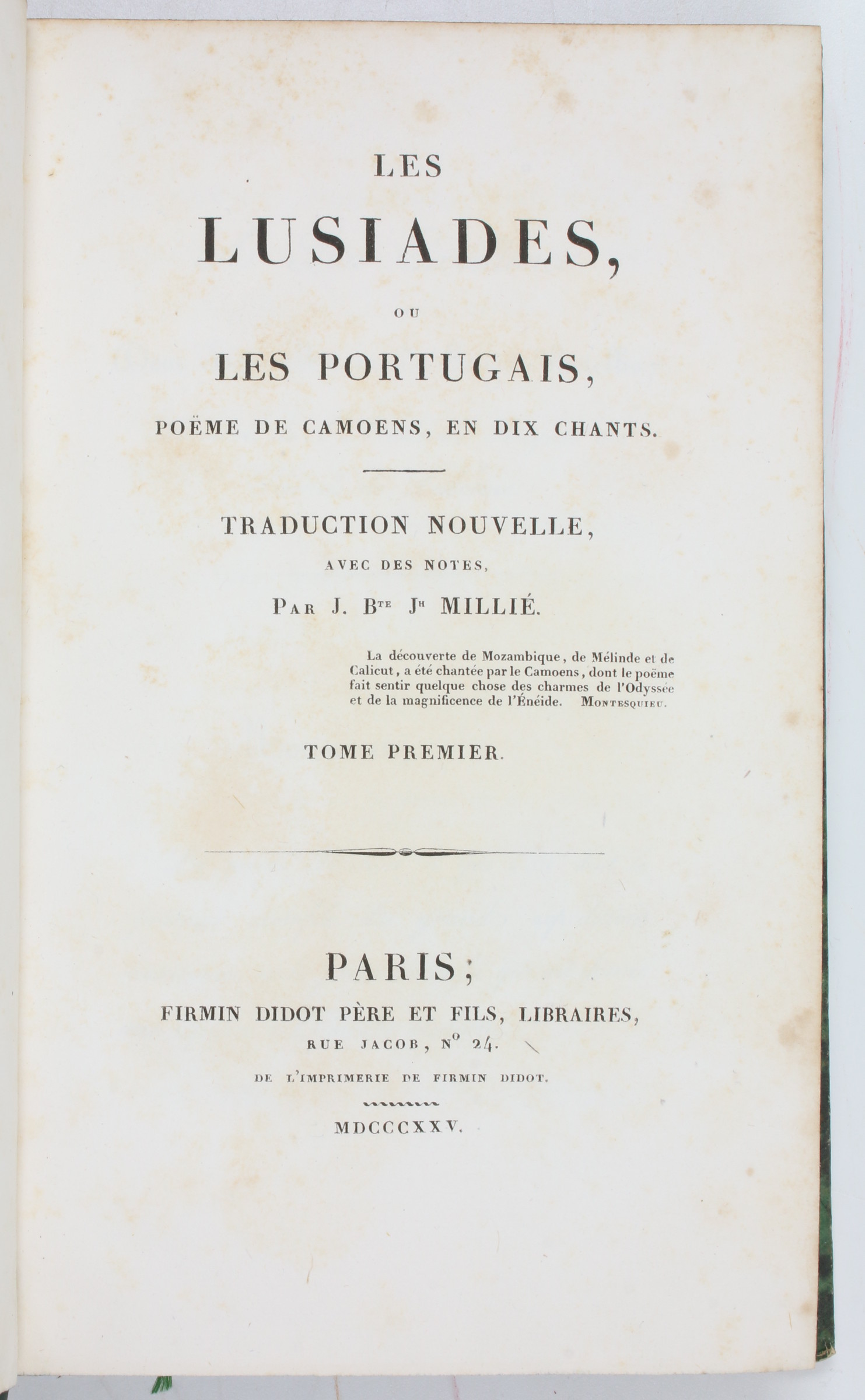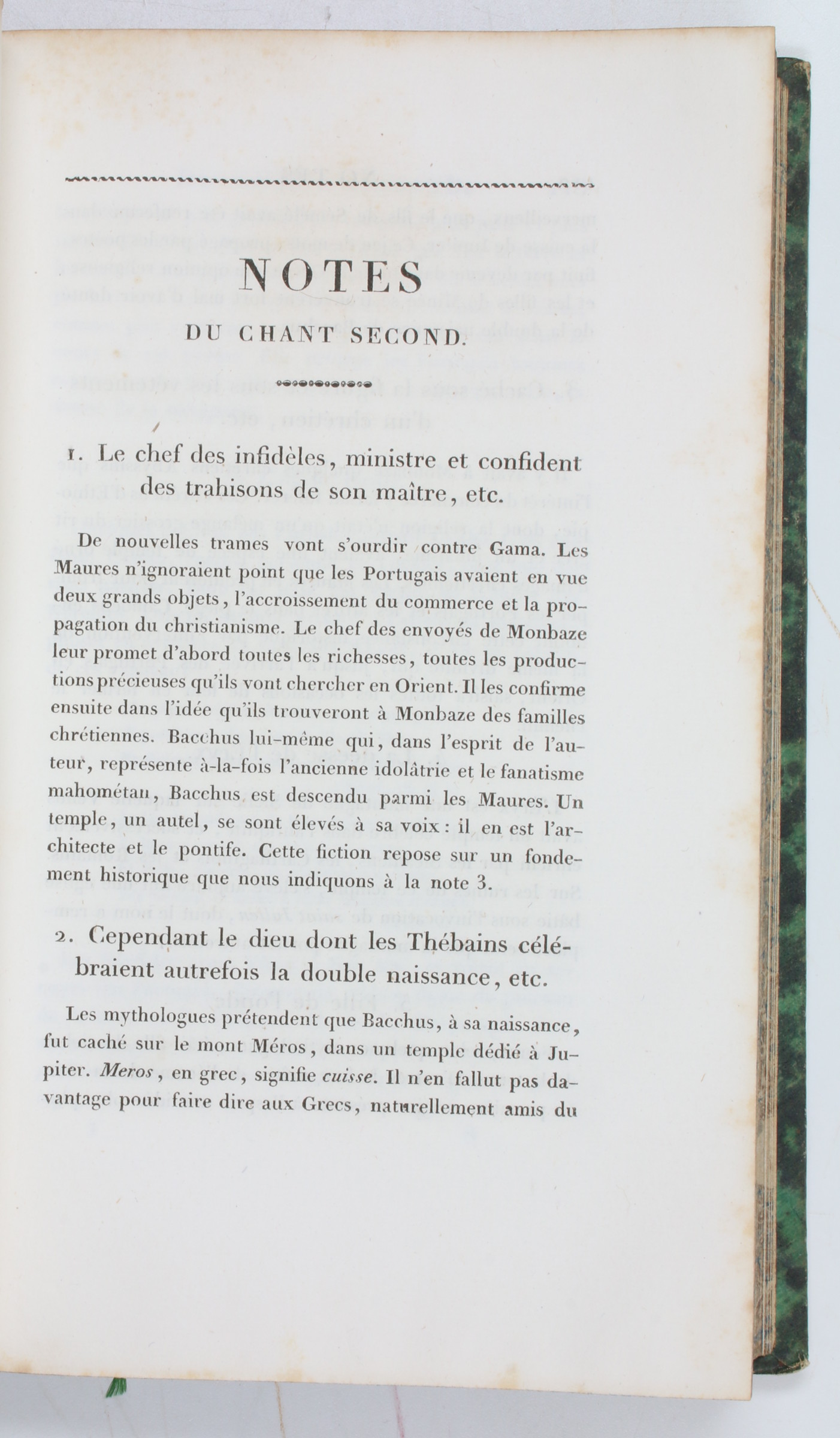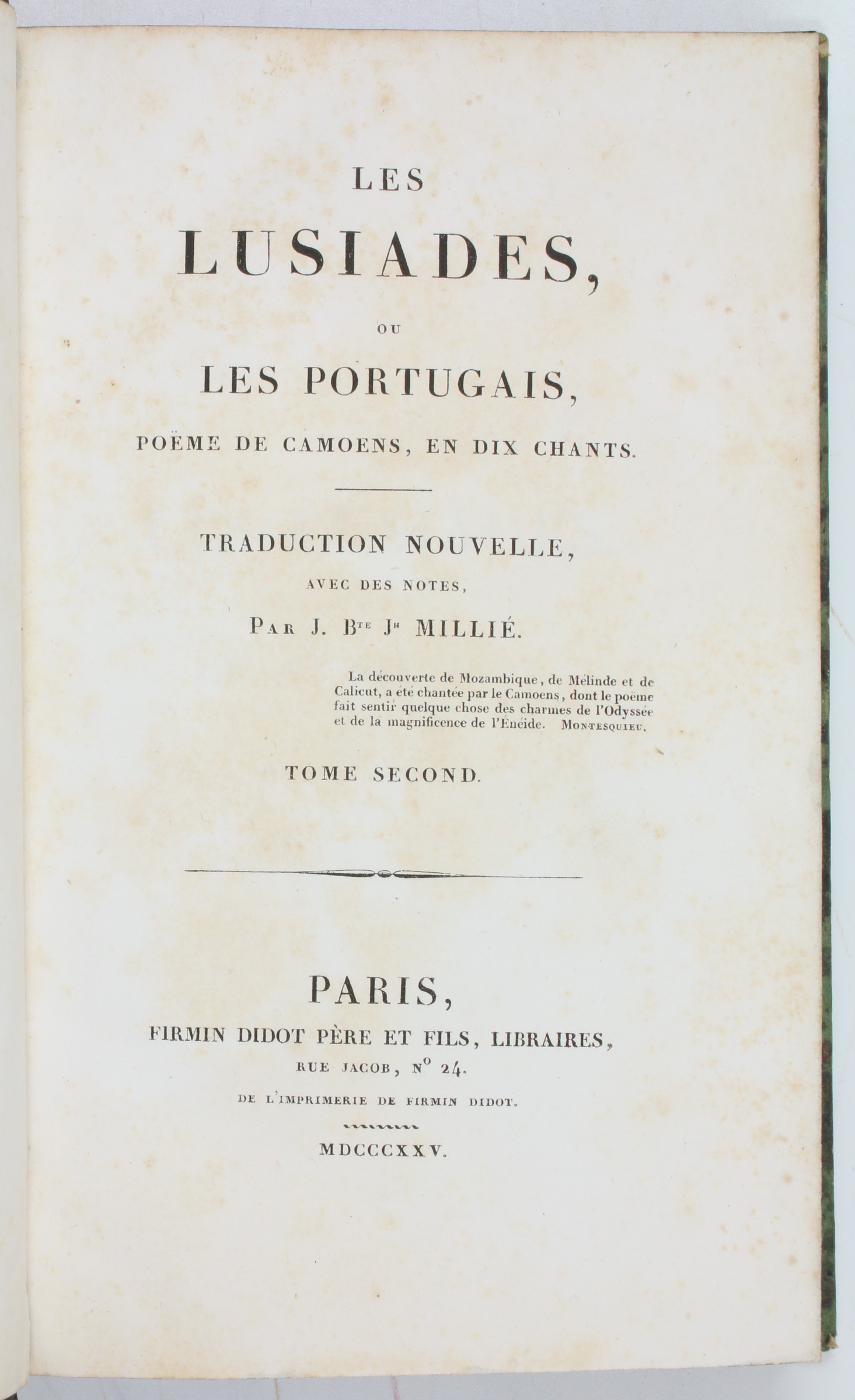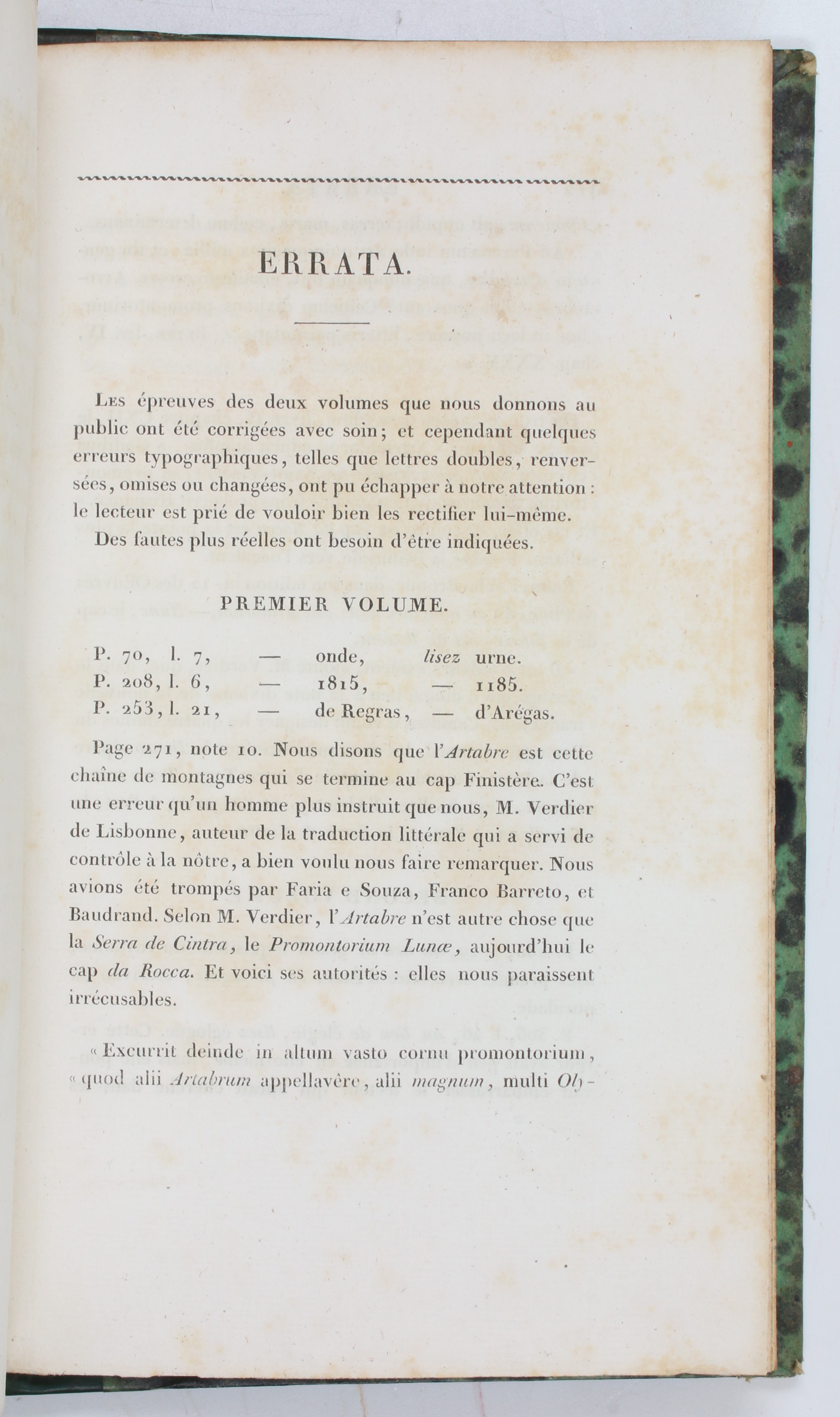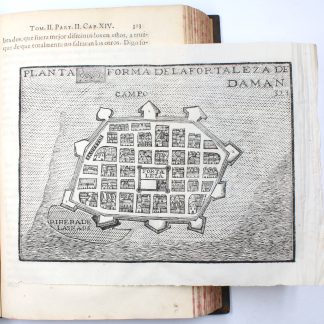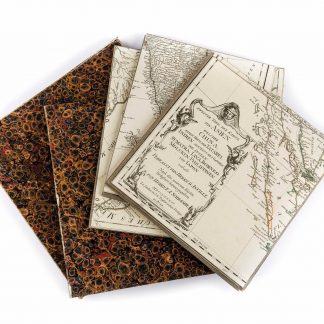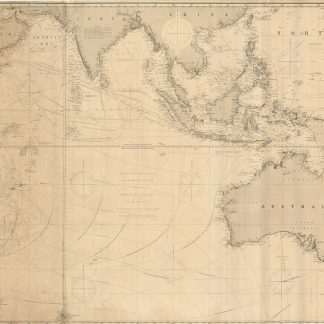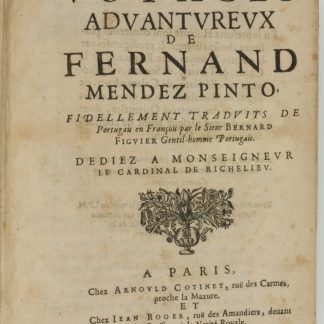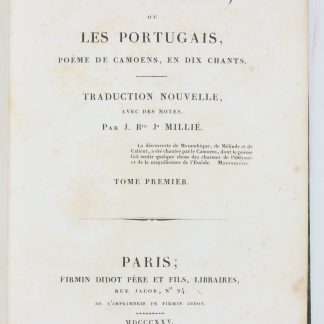The epic poem of Portuguese exploration
Les Lusiades, ou les Portugais, poème [...] en dix chants.
8vo (137 x 212 mm). 397, (3) pp.;413, (1) pp. Contemporary green half calf over marbled boards with prettily gilt spines. Marbled endpapers. All edges marbled.
€ 950.00
First edition of this annotated French translation, by Jean Baptiste Joseph Millie, of the epic poem of Portuguese exploration, a monument of Portuguese literature, and a work that gave a Homeric form to Renaissance-era travels and discoveries.
"The 'Lusiads', as a synthesis of national sentiment and literary development, stands unchallenged as the epic of the Portuguese nation, and it celebrates more than anything else the voyage of Da Gama and the intrepid bravery of the Portuguese on land and sea" (Lach). Camoens' work was first published in Lisbon in 1572. In the early 1530s the great Portuguese historian, Joao de Barros, most famous for his "Decadas de Asia", called for an epic poem of Portuguese exploration and discovery. That call was answered later in the century by Luis de Camoens (1524-80). Camoens was educated in a monastic school in Coimbra, and produced poetry and plays at a young age. In his early twenties he was banished from Lisbon after producing a play thought to be disparaging of the royal family. He served as a soldier in the Portuguese forces besieging Ceuta in North Africa, where he lost an eye. Camoens returned to Lisbon in 1550, but found himself in more trouble, and was pardoned by the King on condition that he serve the Crown in India for five years. He arrived at Goa in late 1553 and stayed there briefly before joining an expedition to the Malabar Coast. Later he participated in a campaign against pirates on the shores of Arabia. In 1556 he left Goa again for the East Indies, taking part in the military occupation of Macao, where he remained for many months. On his return trip to India, Camoens was shipwrecked off the Mekong and wandered in Cambodia before getting to Malacca and eventually back to Goa. He did not return to Lisbon until 1570. Camoens' inspiration for his epic poem, composed in ten Cantos, was Virgil's 'Aeneid'. Camoens made explorer Vasco da Gama his hero, using his exploits as a way to glorify the achievements of the Portuguese nation, the "sons of Lusus" (the mythical first settler of Portugal). Camoens likely wrote parts of Cantos III and IV, which deal with Portuguese history, before his departure for the East, but Lach and others make a convincing case that the bulk of the poem could only have been written after Camoens had his long firsthand experience in India and Asia. Indeed, Camoens wrote much of the work while in the East. Cantos VII to X deal most directly with Asia, beginning with Da Gama's arrival in India and ending with his return to Portugal. Canto X also includes references to Mexico and Brazil.
"The Lusiad" is a fine description not only of Portuguese exploits in the East, but also of the flora and fauna of Asia and India, the ethnographic details of the peoples there, and of the geography of the region, informed by Camoens' own experiences as well as familiarity with Ptolemy and Barros. Camoens' epic poem not only sang the praises of the Portuguese nation, it also appealed to Christian Europe in calling for a common crusade against Turkish and Muslim Asia.
Bindings insignificantly rubbed at extremeties, interior very slightly foxed in places, but in all a fine, very well preserved copy.
Graesse II, 27. OCLC 21140969.

